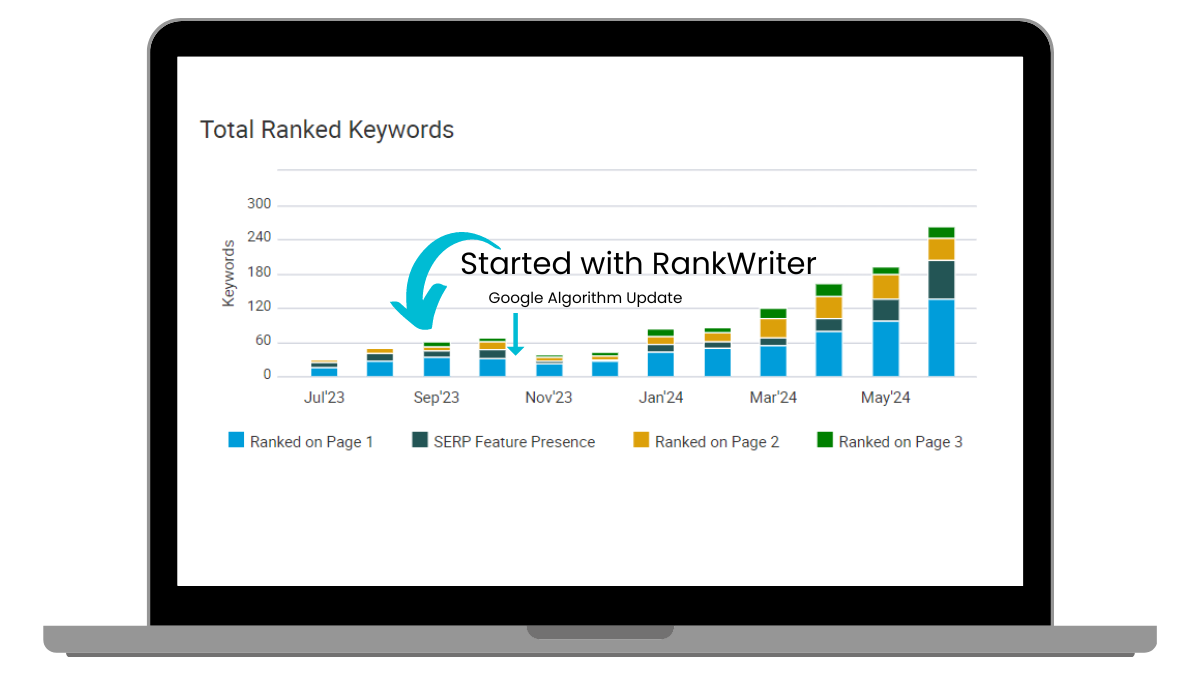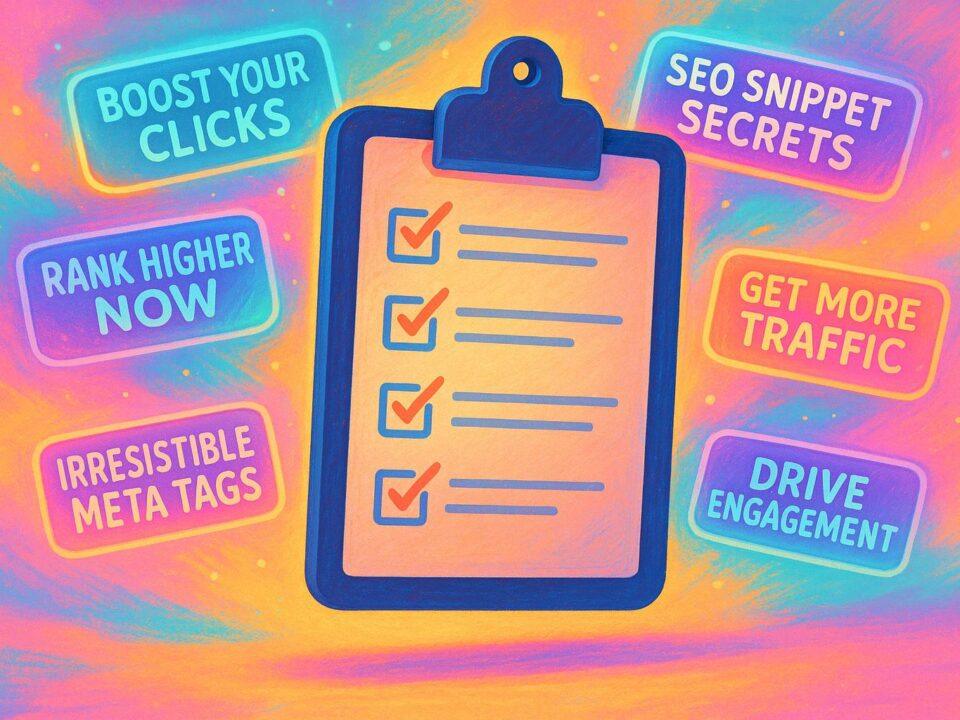Whether you’re a small digital marketing agency struggling to scale or a large agency feeling the strain on resources, you’ve likely heard of “white label content” as a solution. But what is it, and how can it benefit your agency? This article explores white label content and why it might be the game changer you’ve been looking for.
Table Of Contents:
- What is White Label Content?
- Why Agencies are Turning to White Label Content Services
- Is White Label Content Right For My Agency?
- How To Seamlessly Integrate White Label Content into your Business Strategy
- The Case for Content: A Real-World Success Story
- Conclusion
- FAQs about white label content
- Conclusion
What is White Label Content?
Imagine buying a cake from a bakery and adding your own frosting. That’s white labeling. It’s high-quality content created by a third-party, stripped of any branding. You can then take this “unbranded” content, whether it’s blog posts, website copy, social media updates, or video scripts, add your agency’s logo, and deliver it to your clients as your own.
White label content creation is a common practice in many industries and provides a convenient way for PR and marketing agencies to offer additional services without building everything from scratch.
Why Agencies are Turning to White Label Content Services
The digital world thrives on content, and the demand often surpasses what in-house teams can handle. That’s where content marketing services with white labeling become a valuable resource. Here are a few reasons why:
Reduced Operational Costs
Building a dedicated in-house content team is expensive. It’s not just salaries; it’s recruitment, training, software, and benefits. White labeling lets you access expertise without the overhead, providing a cost-effective way to manage content creation.
Scaling Your Services
Landing new clients is exciting until you realize you might not have the capacity to meet their needs. White label content allows you to accept new projects and scale quickly, ensuring you leverage opportunities as your business grows. You can increase content orders to match client demands, a key advantage for agencies focused on growth.
Focus On Your Core Competencies
You’re a marketing agency, not just a content provider. White labeling allows your team to concentrate on what they do best: client relationships, campaign planning, and data analysis. Instead of getting bogged down in content creation, you can focus on strategic initiatives that bring value to your clients.
Delivering Exceptional Quality Content Writing
Many white label content writing services, including RankWriters, connect you with a network of skilled content writers. These writers bring diverse experience, ensuring high-quality content tailored to your clients’ needs.

Is White Label Content Right For My Agency?
While white label content services offer advantages, it’s essential to determine if it suits your agency’s and your clients’ needs. Consider these factors:
Are You Experiencing These Pain Points?
- Regularly turning down clients due to limited capacity.
- Your team is overwhelmed, juggling numerous projects.
- Struggling to meet content deadlines without compromising quality.
- Maintaining content consistency across clients’ diverse styles is difficult.
If these resonate, white label content might be the solution.
How To Seamlessly Integrate White Label Content into your Business Strategy
Convinced? Here’s how to integrate white label content creation into your workflow.
1. Choose a Reliable Partner for White Label Content Marketing:
Partnering with companies like RankWriters gives you access to experienced writers and editors specializing in various content types, from SEO-driven content to e-books and guides. Consider factors like your budget and content volume to decide if a platform, freelancer, or agency is the best fit. Research and compare to find the ideal partner for your agency’s needs.
2. Communicate Your Needs Clearly:
Think of your white label writing service as an extension of your team. Provide detailed briefs, style guides, and client expectations to ensure consistency in brand voice and messaging.
3. Review & Personalize Content:
While the content is pre-written, review and add your agency’s unique touch. Tailoring content for each client enhances its value and strengthens your agency’s branding.
4. Track Metrics:
Measure the content’s performance through a robust reporting system. Analyze data like website traffic, engagement metrics, and conversion rates. This data-driven approach allows you to make informed decisions, optimize content strategies, and demonstrate the value of your services to clients.
Examples Of Effective White Label Content:
- Blog Posts: Increase a client’s organic traffic with high-quality blog posts using relevant keywords to improve search engine rankings.
- Website Copy: Craft captivating web copy that engages visitors and drives conversions from the moment they land on your clients’ websites.
- Social Media Content: Keep followers engaged and expand reach with compelling social media posts designed to generate interest and encourage interaction.
- Email Marketing Campaigns: Implement targeted email marketing campaigns to nurture leads, guide them through the sales funnel, and drive conversions.
- eBooks & White Papers: Position clients as industry leaders with valuable, in-depth eBooks and white papers that provide valuable information to their target audience.
White label content services extend far beyond simple blog posts, offering a range of options to enhance your clients’ digital presence and help them achieve their marketing goals.

The Case for Content: A Real-World Success Story
Data shows the impact of a strong content marketing strategy. For instance, businesses publishing 16+ blog posts monthly experience 3.5x more traffic than those that don’t, according to Kaleidico.
Consider the potential for your clients when you scale their content output: greater visibility, increased leads, and ultimately, business growth.
FAQs about white label content
What is white label content?
White label content is created by a third-party provider, allowing you to use it as your own. Content types include blog posts, social media updates, ebooks, and website copy. It allows you to offer clients valuable content without creating it from scratch.
What are the benefits of using white label content?
There are many benefits of using white label content, including:
- Cost-effective: Buying white label content is usually more affordable than in-house creation.
- Saves time and resources: You can focus on other business areas, like sales and marketing.
- Scale your content marketing: Easily adjust your content production up or down based on demand.
- Improve content quality: Access experienced content writers and creators to ensure top-notch content that meets your clients’ specific needs.
How do I choose a white label content provider?
Consider these factors to find the best fit:
- Quality of Content: Ask for samples to check writing quality and expertise in specific subjects.
- Pricing: Get quotes from multiple providers to compare, but don’t sacrifice quality for the lowest price.
- Turnaround time: Different providers have different turnaround times, so understand their timelines and set clear expectations.
- Customer service: Choose a provider who responds promptly to questions and concerns and offers excellent support.
Reading reviews from other agencies about their experience is vital. Thoroughly research potential white label content creators before deciding.
Conclusion
In a digital world where content is king, white label content empowers agencies and small businesses to streamline operations, scale their offerings, and reach their full potential. By effectively utilizing white label content services, agencies can establish themselves as reliable partners who deliver outstanding client services and drive meaningful results. It’s not just about staying competitive; it’s about propelling your agency to new heights through the power of exceptional content!








